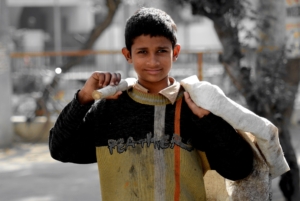
Recently, at our 3WLN event in Switzerland, my wife Jamie and I had the opportunity to interview millennial and Gen Z young people from the Middle Eastern countries of Egypt, Morocco, and Lebanon. This was particularly interesting because all three Islam-dominated countries have large populations of youth (as does the entire Middle East), and one country is quite conservative (Morocco), one is typically moderate (Egypt), and the other is very liberal (Lebanon) by the standards of this conservative region. We wanted to know how the youth of today is perceiving the world and particulary religion.
Despite being very different nations, with different cultures, backgrounds, forms of Islam and other religions, the young people of the Middle East are facing many of the same challenges and concerns. To begin with, none of their countries currently have a strong economy. Unemployment is quite high by global standards and there is a lack of opportunity. Poverty is a wide-spread problem as is making enough money to get married or start a family. Those countries or sub-cultures where arranged marriages are common, are seeing less children willing to marry the person their parents picked out for them. When societies lose the ability to create new families because of living costs (as is also happening in the United States and East Asia), it usually leads to a period of upheaval–as does high youth unemployment.
The result is that many Middle Eastern youth want to immigrate to wealthier Western nations. They are not very interested in Al-Qaeda or ISIS, but are very interested in atheism. Islam is losing many of its youth to atheism (as is Christianity). The exposure to a more pluralistic world has young people questioning the religious ideas and values they have been taught. They are not interested in being terrorists like Osama Bin Laden. They are interested in being influencers like Kim Kardashian. Tik Tok and Instagram celebrities are followed closely–including those that cater specifically to their nation or nationality. Social media is huge and all reported something quite interesting: “Today’s youth don’t know who they are.” In other words, they don’t have much of a sense of their personal identity. They don’t have a routine, values, plans or goals. The buy into the carefully crafted (and manufactured) images of social media celebrities. They want that (impossible to attain and disconnected from reality) life.
Perhaps most surprising is how easily accessible, popular and accepted pornography has become. Even in elementary school, it is not uncommon for children to already be navigating the world of hardcore porn. The result is that this is also changing how young people view sexuality. In Lebanon, homosexuality is clearly visible and a non-issue. That is not terribly surprising. It is surprising, however, that it is becoming something far more out in the open in Egypt. For young people, Islam’s view on homosexuality is outdated. Morocco is still the country where liberal mores must be well-hidden; but even there, the young people’s personal beliefs align far more with what is happening in the Western world than in their traditional societies.
It has long been predicted that the Middle East and North Africa’s high rate of unemployed young people would one day become a very distabilizing issue. For now, what is being destablized more and more is the relationship between parent and child, youth and mosque. Today’s youth are tech savy, global, and more individulistically-minded. It will be interesting to see what the next 10 years bring for these two generations.
And their suggestions for the Christian Church which is increasingly out of touch with today’s Middle Eastern youth and unable to communicate with them?
- Speak their language
- Use social media
- Don’t hold long meetings
- You need preachers who can speak to youth
- Youth should serve youth
- Work on your apologetic (Biblical/theological) skills
Great advice! They also mentioned that we should be outsourcing them for all things tech-related.
It was a pleasure to meet with them and gave us a great insight into the changing face of Middle Eastern youth.
